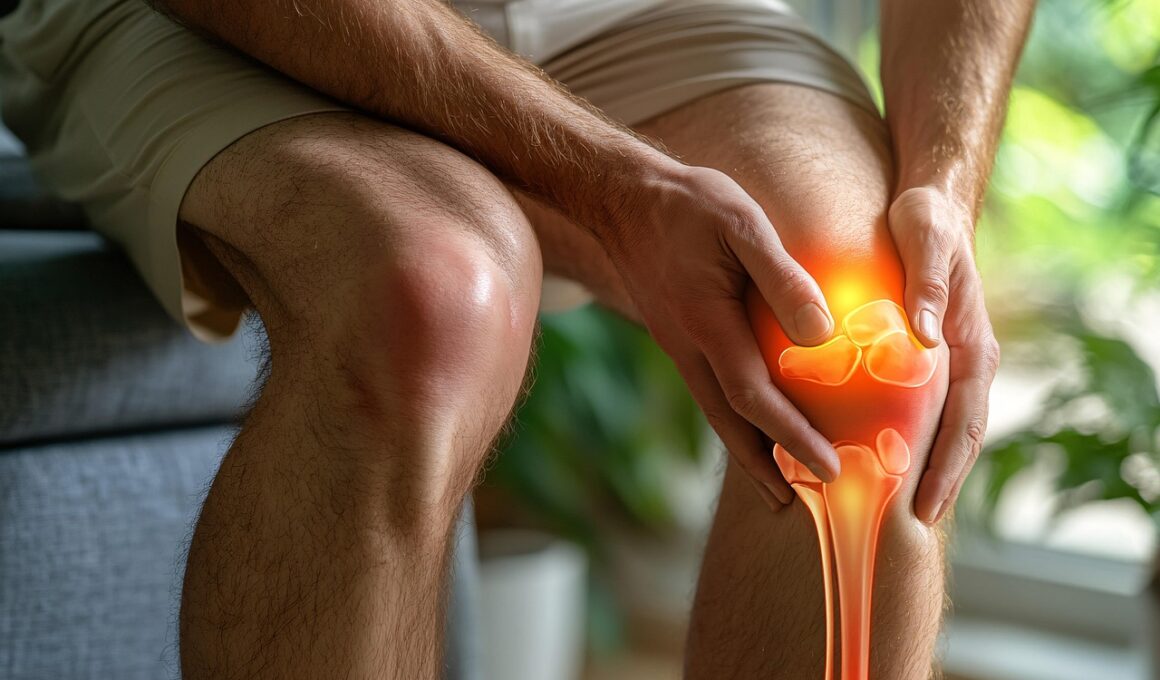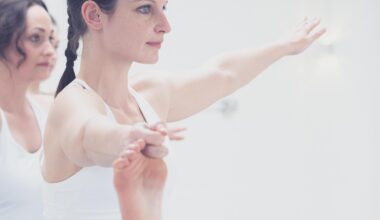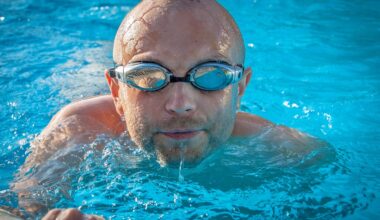Postnatal Joint Health: Preventing Pain and Injury
After childbirth, many women experience various body changes that significantly affect their joint health. Hormonal shifts and physical stress during pregnancy can lead to increased joint laxity, potentially resulting in discomfort and pain. Maintaining proper joint health postnatally is crucial, especially for new mothers who want to engage in physical activities safely. Understanding your body is the first step in addressing these postnatal changes. By focusing on strengthening muscles around the joints, you can mitigate pain and prevent injuries. Additionally, adopting a regular low-impact exercise routine can be beneficial. Activities like walking, swimming, and postnatal yoga support joint stability, improve flexibility, and enhance overall well-being. If you experience persistent discomfort, don’t hesitate to seek professional guidance. A physical therapist can assist in devising a tailored exercise plan to address your specific needs. Incorporating targeted stretches and strength-building exercises into your routine will make a difference. Listening to your body’s signals is essential during this time; ensure you prioritize rest when necessary to support recovery and ongoing health. Stay hydrated, and remember gradual progression is key to successful rehabilitation.
Importance of Nutrition for Joint Recovery
Nutrition plays a vital role in postnatal recovery, especially concerning joint health. Consuming a balanced diet rich in essential vitamins and minerals can significantly impact joint function and overall well-being. Foods high in omega-3 fatty acids, such as salmon and walnuts, exhibit anti-inflammatory properties that help manage joint pain. Moreover, calcium and vitamin D are crucial for maintaining strong bones, which directly support your joints. Incorporate leafy greens, dairy products, and fortified foods into your daily intake to ensure you meet these nutritional needs. Staying hydrated is equally critical, as water is essential for maintaining joint lubrication, contributing to mobility, and preventing stiffness. Avoid processed foods high in sugar and unhealthy fats, as these can exacerbate inflammation and pain. Consider consulting with a nutritionist to create a tailored meal plan that supports your recovery goals and preferences. Engaging in mindful eating practices can further enhance motivation and ensure you make conscious food choices. Prioritizing nutrition and hydration will not only aid joint recovery but also enhance your overall health and energy levels postpartum.
Postnatal exercises can significantly improve joint health when performed correctly. Understanding the appropriate time to begin these exercises is crucial, as your body requires time to heal. Ideally, start with gentle movements and gradually increase intensity as you regain strength and mobility. Focus on low-impact activities that engage stabilizing muscles without overstraining your joints. Pilates and yoga are excellent options that emphasize core strength and flexibility. Additionally, always warm up before any physical activity to prepare your joints and muscles for movement, minimizing the risk of injury. A proper cooldown routine afterward is equally important, as it aids in recovery and helps prevent stiffness. Listening to your body is essential during this process; if you experience sharp pain or discomfort, modify your routine accordingly. Engaging in regular strength training can also help build the muscles around your joints, providing support and stability. As your body continues to adapt to postnatal changes, pay attention to any new aches or pains, and consult with a healthcare provider if needed. Regular check-ins will ensure your activities align with your recovery goals and maintain joint health.
Identifying Painful Symptoms and When to Seek Help
Recognizing the signs that indicate potential joint issues postnatally is essential for managing pain effectively. If you experience persistent, sharp pain in your joints, particularly in the knees, hips, or lower back, it’s advisable to seek medical assistance. Pain that interferes with daily activities or worsens over time may require a professional assessment. Joint swelling or stiffness accompanied by reduced mobility can also signify underlying issues that necessitate evaluation. Additionally, if you notice a clicking or grinding sound in your joints during movement, don’t ignore it, as it could indicate joint instability. A qualified healthcare professional can provide a thorough examination and recommend appropriate treatment options tailored to your situation. Early intervention helps prevent further complications, ensuring a quicker recovery and healthier lifestyle. Regular physical check-ups during this period can also play a pivotal role in monitoring joint health and overall well-being. Remember to communicate openly with your healthcare team about any concerns or changes that may arise postnatally. Your proactive approach will empower you to maintain optimal joint health while embracing motherhood.
Creating a supportive environment at home is vital for facilitating postnatal recovery and joint health. Structuring your living space to minimize unnecessary strain on your joints can be achieved easily and effectively. For instance, invest in supportive seating arrangements, particularly for breastfeeding or bottle-feeding. Utilize pillows and cushions to maintain proper posture and reduce pressure on your lower back and hips. Organizing everyday items for easy access can also minimize bending and straining movements that may lead to discomfort. Furthermore, involving family members in child-rearing tasks can alleviate some physical burden during recovery. Seeking help with household chores and errands allows you more time to focus on your recovery. Prioritizing rest and self-care during this transformative stage is crucial for long-term health. Engage in compassionate self-talk and embrace the fact that healing takes time. Simple strategies like practicing relaxation techniques or mindfulness can decrease stress levels and promote overall wellness. Creating a balance between rest and gentle activity will foster a healthier postpartum experience. Trust that with time, care, and support, you will regain your strength and vitality.
Incorporating Massage Therapy and Myofascial Release
Massage therapy can be an effective modality for enhancing postnatal joint health and alleviating discomfort. Incorporating targeted massage techniques into your recovery plan will help release tension in the muscles surrounding your joints. Myofascial release, in particular, focuses on alleviating restrictions within the body’s fascial system, promoting improved mobility and blood flow. A licensed massage therapist experienced in postnatal care can employ various techniques tailored to your specific needs and preferences. Frequent sessions can significantly reduce pain, enhance flexibility, and promote relaxation. Regular massages can also support lymphatic drainage, which plays a crucial role in reducing swelling and improving overall circulation. Discuss with your healthcare team before starting massage therapy to assess any contraindications or necessary precautions. Additionally, practicing self-massage techniques at home can be beneficial for maintaining joint health and promoting relaxation. Utilizing tennis balls or massage rollers can help ease tight muscles independently. By being proactive about your self-care regimen, you will support your body’s healing processes and enhance your physical comfort postnatally. This holistic approach to recovery can empower you on your journey towards strong joint health.
Engaging in community support is invaluable for postpartum recovery and maintaining joint health. Connecting with other new moms through support groups or online communities can offer emotional comfort and shared experiences. Having a network of individuals who understand the challenges of motherhood can ease feelings of isolation and provide encouragement during physical recovery. Consider joining local mother-baby classes that focus on gentle exercise; such classes promote social interaction while also addressing fitness needs. Finding a workout buddy can also enhance motivation and accountability in your self-care routine. Remember, sharing your journey allows for the exchange of helpful advice and resources regarding self-care practices, nutrition, and joint health. Being part of a supportive community fosters positive mental health, which directly influences physical healing. Additionally, integrating regular social activities with peers can boost overall well-being and create opportunities for stress relief. Incorporate activities like walking in a park or attending workshops that focus on postnatal care. Ultimately, a strong support network will play a pivotal role in your recovery journey, ensuring you thrive as a new mother and maintain optimal joint health.


